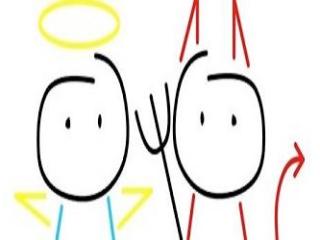The Fluctuating Moral Self-Image and Ethical Behavior at Work
| Datum: | 19 januari 2016 |
| Auteur: | Jennifer Jordan |

My collaborators, Marijke Leliveld, Ann Tenbrunsel, and I recently published a paper demonstrating that people have a self-image centered around the moral traits they possess. This self-image, which we call “the moral self-image,” is a moment-to-moment assessment of how moral a person feels relative to his or her ideal moral self. The moral self-image is based on the traits of caring, compassionate, helpful, hard-working, friendly, fair, generous, honest, and kind. The trait of “hard-working” is particularly interesting, since some cultures, particularly those based in a protestant work ethic, closely link hard work and laziness with morality, and other cultures, particularly those that are more leisure oriented, do not. We also developed a nine-question tool that people can use to gauge this momentary assessment.
According to our research, the moral self-image is altered by moral and immoral actions that people take throughout their day such that when people do something they perceive as moral, for example help a colleague or donate money to charity, their moral self-image is raised and when people do something they perceive as immoral, for example cut someone in a queue or lie to a client, their moral self-image is lowered. Our colleague at the Barcelona Graduate School of Economics (Gert Cornelissen) even demonstrated that the current state of a person’s moral self-image can be used to predict their subsequent moral and immoral behavior, with high moral self-images leading people to relax their moral strivings and low moral self-images leading people to raise their moral strivings. This oscillation occurs not through a “bank” that people make daily or weekly deposits to and withdraws from but operates more on a moment-to-moment basis with people trying to rid themselves of the guilt that accompanies a lowered moral self-image by doing something immediate to boost it and people relaxing their moral strivings due to the self-assurance that accompanies a raised moral self-image.
So, what implications do these results have for organizations and HR? First, they suggest that the actions that people take, at work and elsewhere, affect their moral self-images in positive and negative ways. Second, they suggest that people’s assessments of how moral they are is not something that is stable across time but rather is something that changes on a momentary basis. Thus, as HR managers, we should be conscious of how cues and opportunities in the environment affect our employees’ views of their moral selves. Importantly, we don’t find that moral and immoral behaviors affect people’s general self-images (that is, their self-esteem) but we do find that people’s moral self-images bleed into how they feel about themselves more generally. Additionally, taken with the research of our colleague, Gert Cornelissen, these results suggest that understanding the current state of a person’s moral self-image can provide insight into how they will behave subsequently, with strong moral self-images often leading to lesser moral behaviors and weak moral self-images leading to greater moral behaviors.
While I am not suggesting that workplaces should ask their employees to complete our moral self-image scale several times throughout the day, I am suggesting that employees should be mindful of how they feel about their moral selves and what might be affecting these self-perceptions, as these perceptions provide important cues on the morality of people’s behaviors and signals about what they value. For example, if I am feeling quite negative or quite positive about the state of my moral self, it should lead me to pause and reflect on what I might have done that day to make me feel this way. Did I act unkindly towards a lesser-performing subordinate? Did I make an unfair decision with regards to my colleague? Did I help an underperforming colleague? Or did I show compassion towards a client who was going through a tough situation? In many ways, the moral self-image provides us with a gauge of what we value (or don’t value) and hold scared in our lives, and it may provide valuable insight for managers on what affects people’s moral behaviors.
Link to the paper:http://journal.frontiersin.org/article/10.3389/fpsyg.2015.01878/abstract
Marijke Leliveld: http://www.rug.nl/staff/m.c.leliveld
Ann Tenbrunsel: http://mendoza.nd.edu/research-and-faculty/directory/ann-tenbrunsel
Gert Cornelissen: http://www.barcelonagse.eu/people/cornelissen-gert


